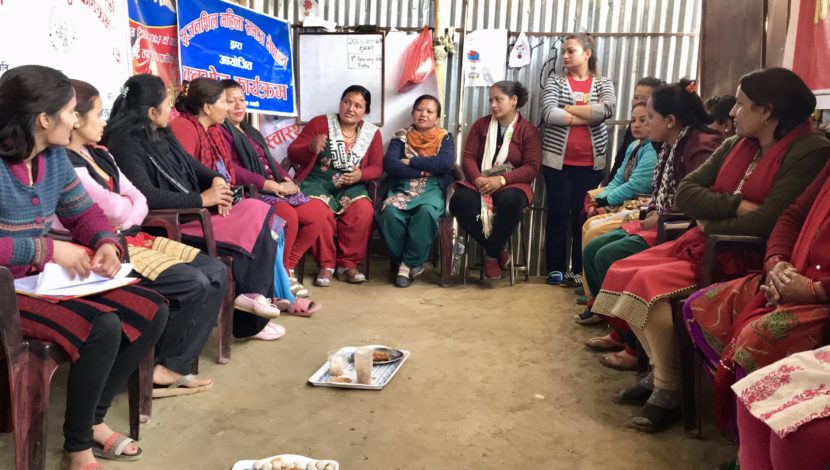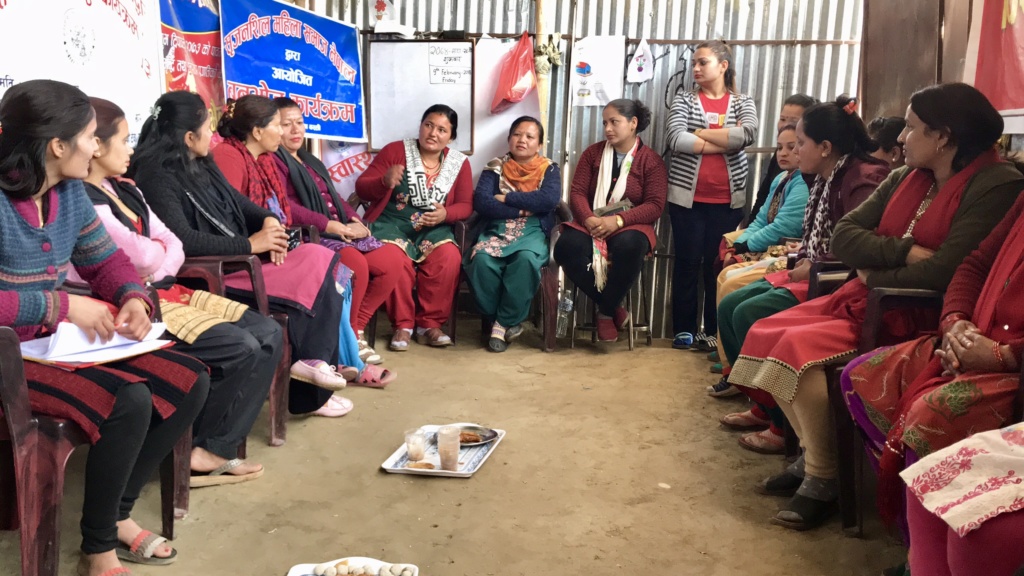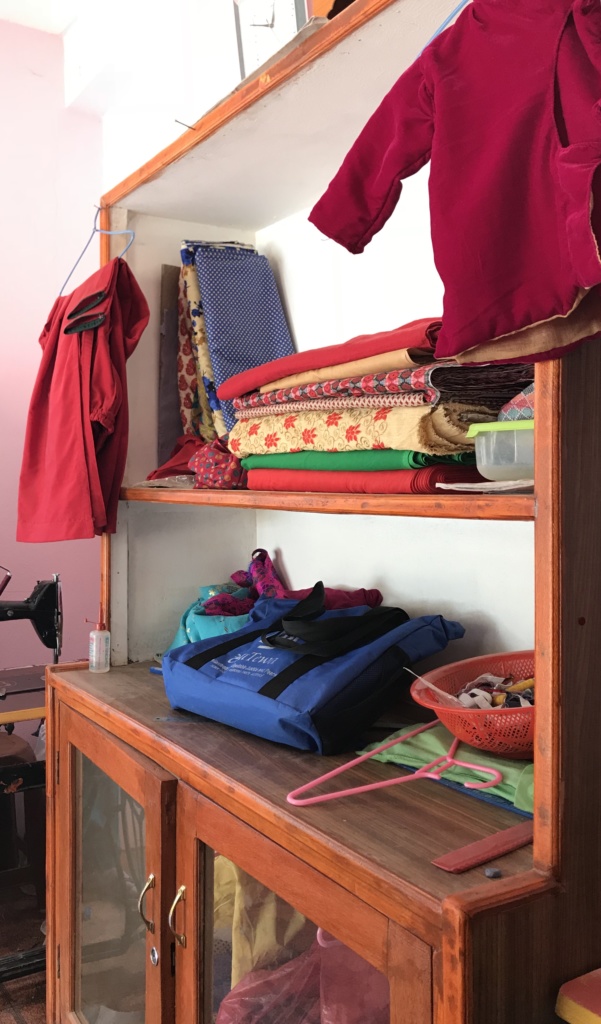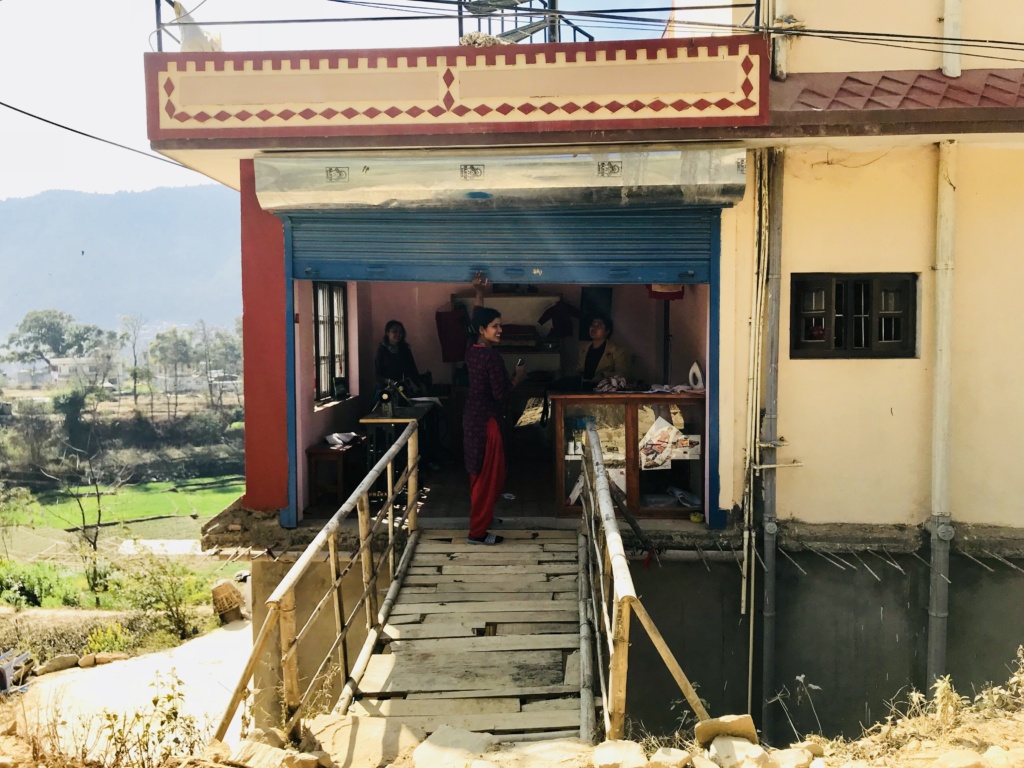El Comité de Servicio Unitario Universalista promueve los derechos humanos a través de colaboraciones de base.
Everything That Counts: Learning from Our Nepal Partners

By on marzo 15, 2018
“I can’t explain it in words.” This was a Srijanshil Mahila (Creative Woman) member’s first response when Michael Kourabas, UUSC associate director for program and partner support, and I asked about her experience during the 2015 earthquakes in Nepal. Although two and a half years have passed, it was evident from conversations we had with partners and community members that the effects are still with them today.
Throughout our week-long visit, we were granted many opportunities to listen and learn not only about the earthquakes’ destruction and injustices exposed but also the ways in which individuals, families, and entire communities tapped into their resilience and power to support one another.

Recovery and Resilience: The women of Srijanshil Mahila
Srijanshil Mahila is based in the Dharmasthali village of Kathmandu and made up of women from several districts. Although these women were working to help themselves and their communities as soon as the earthquake hit, the group officially came together about a year ago with support from UUSC’s partner, Tewa.
Shelter, waste disposal, and water scarcity are a few of the immediate issues that arose in earthquakes’ aftermath. Aftershocks and rumors of theft made people uneasy about returning to their homes, so families pitched tents and tarps outside or, when this was not an option, stayed together under the open sky. In Dharmasthali, forty women worked together, traveling to a nearby development to retrieve water for others. In an effort to create more sanitary conditions, some of the women also helped dig holes to dispose of human waste. Several women worked together with Tewa to improve this situation.
Like UUSC, Tewa strives to follow the lead of the communities it supports. In this spirit, they listened to and delivered on women’s requests for trainings relating to livelihood skills and sustainable income sources, such as sewing and soap-making, as well as leadership development, and sexual and reproductive health advocacy.
Srijanshil Mahila members were adamant that other women from the community be invited to participate in trainings, and many were able to combine what they gained from skill-building and leadership trainings to start their own businesses. Several women now run a tailoring shop, and another member runs a beauty parlor.


When UUSC assesses impact, we’re curious to learn about any unanticipated benefits resulting from our partner’s work. For example, have community members taken on any unexpected leadership roles? Exploring the unexpected benefits is often how we come to understand the compounding effects of our partnership. It illustrates how our support can expand over time.
“This was so fruitful for me,” explained a preschool teacher about her participation in Tewa’s leadership training. “I used to make the rules myself for my classes, but now we are working together to do this. There is a relationship between me and the staff that was not there before. I’m learning from them.”
“Politics are typically set up where women are expected to take the supporting roles, like treasurer or secretary. Now, we can fight for lead roles.”
With newfound supportive relationships and a greater sense of personal agency, some women have felt empowered to seek leadership enhancement trainings from Tewa, positioning themselves to run for office. One Srijanshil Mahila member remarked, “Politics are typically set up where women are expected to take the supporting roles, like treasurer or secretary. Now, we can fight for lead roles.”
Men feel the positive effects of these changes as well. Although initially some men were critical of the time and energy women devoted to the Tewa trainings and each other, several have begun asking how they can also receive trainings.